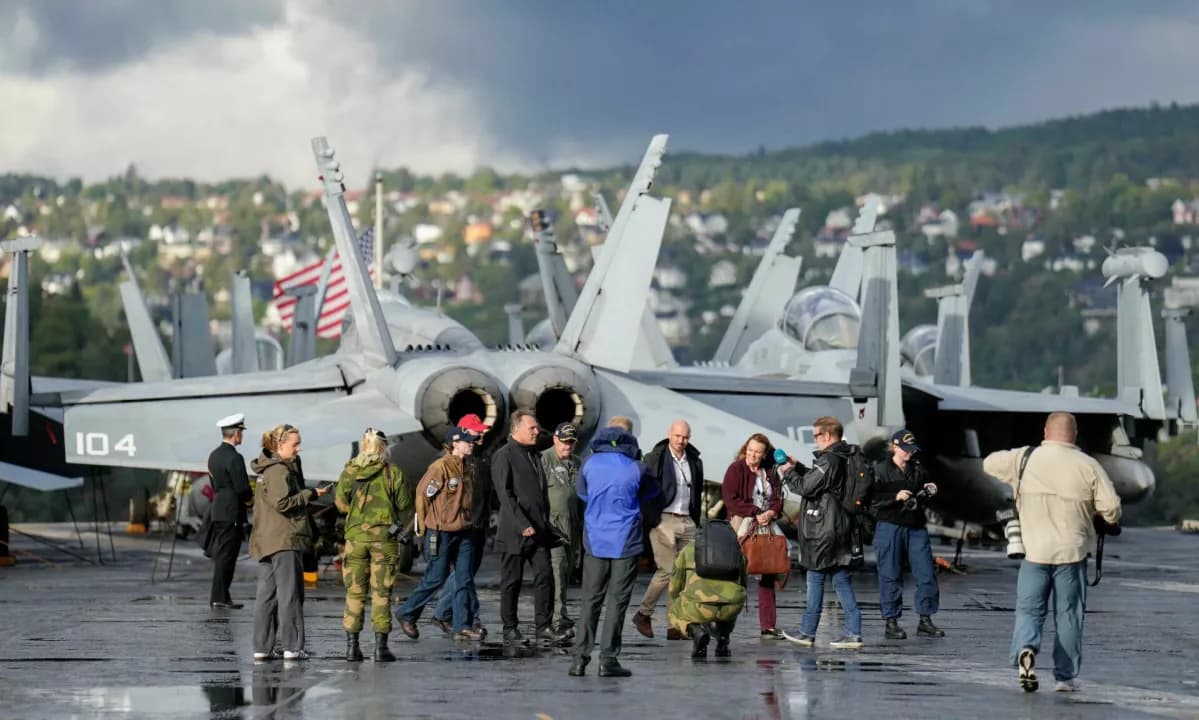The security situation in Europe is being tested again after a recent incident in which twenty Russian drones entered Polish airspace. More than the Zapad 2025 military exercises, which are once again being staged by Russia and Belarus, Europe is more concerned about the incident with cheap Russian foam and wood drones, which can be seen as an attempt to intimidate NATO members and also to test the reaction of Poland and the alliance. NATO is still investigating the incident itself, but it is already clear that the number of violations of allied airspace by Russian drones is increasing. Such incidents have already occurred in Romania, Estonia, Latvia and Lithuania. Regardless of whether it was an intentional or unintentional act, it was dangerous and unacceptable, NATO Secretary General Mark Rutte emphasized on Friday, when he presented additional defense measures of the alliance on NATO's eastern flank.
Even before he presented them, the Kremlin announced that the fear of Russian-Belarusian military exercises was unnecessary, and they also tried to downplay the significance of the intercepted drones in Polish airspace. But the European members and NATO did not take any chances: France sent three Rafale fighters to Poland, and the German Air Force also reinforced its patrols in Polish airspace with four Eurofighter fighters. Reinforcements were announced by Denmark (two F16 fighters) and Great Britain. On Friday, NATO decided to strengthen its deterrent role along the entire eastern flank of the alliance.
The operation will involve more capabilities from allies, both air defense and drone defense. Rutte cited contributions from Denmark, France, Great Britain, Germany and other members. The goal is to provide even stronger defense of the alliance's eastern flank with greater flexibility. Supreme Allied Commander Europe Alexus Grynkewich explained that Operation Eastern Guard will ensure a greater deterrent posture for the alliance and the defense of all allies. They also have plans in place to further strengthen defense capabilities there, if necessary, Rutte explained.
Call for sanctions
He then made it very clear that he would not take Wednesday's seven-hour incident in Polish airspace lightly. US President Donald Trump initially tried to downplay it a bit by suggesting that the Russian drone incursions into Polish airspace could have been a mistake. We also wish that the drone attack on Poland was a mistake. But it wasn't. And we know that, Polish Prime Minister Donald Tusk replied.
Trump has been hesitating for days about how to continue the peace process with Moscow. The Kremlin, meanwhile, has claimed that negotiations with Ukraine have stalled. Apart from talks between the EU and the US on additional sanctions against Russia, there has been a lull on the diplomatic scene. Trump also admitted on Friday that he is losing patience with Russia. He announced that very decisive action will have to be taken. He cited sanctions against banks and oil exports as one of the options, which will require European cooperation. On Friday, the US Treasury Department called on its partners in the G7 group and Europe to introduce tariffs on goods from China and India. The secondary tariffs are intended to stop purchases of Russian oil, which would weaken the Russian budget and, consequently, weapons production.
Trump's comments and the Treasury Department's announcement come as some Democrats and Republicans in the United States have called on the president to designate Russia and Belarus state sponsors of terrorism. Republican Senator Lindsey Graham and Democratic Senator Richard Blumenthal have both advocated such a proposal. Both have also called on the US president to impose sanctions on Russia, saying the red carpet approach for Putin from Alaska has failed.
Trump's concession to Lukashenko
Apparently, at least for now, Trump's second attempt in Eastern Europe is working - rapprochement with the Belarusian regime. After the June release of political prisoners, Trump achieved another major success on the eve of joint military exercises between Russia and Belarus, which have been taking place since 2009. The regime of Alexander Lukashenko released 52 political prisoners of various nationalities after American intervention. In exchange for their release, the Belarusian regime negotiated the easing of sanctions on the airline Belavia, which will once again be allowed by the United States to service and purchase parts for its Boeing aircraft. Trump is also said to be seriously considering opening a US embassy in Minsk.
Belarusian opposition leader Svetlana Tikhanovskaya, who was forced to flee Belarus after the illegitimate 2020 elections, welcomed the release of political prisoners and thanked President Trump and the European Union for keeping up the pressure on the Minsk regime. All political prisoners must be released. This must be the first step towards the national dialogue that Belarus so badly needs, she said.

